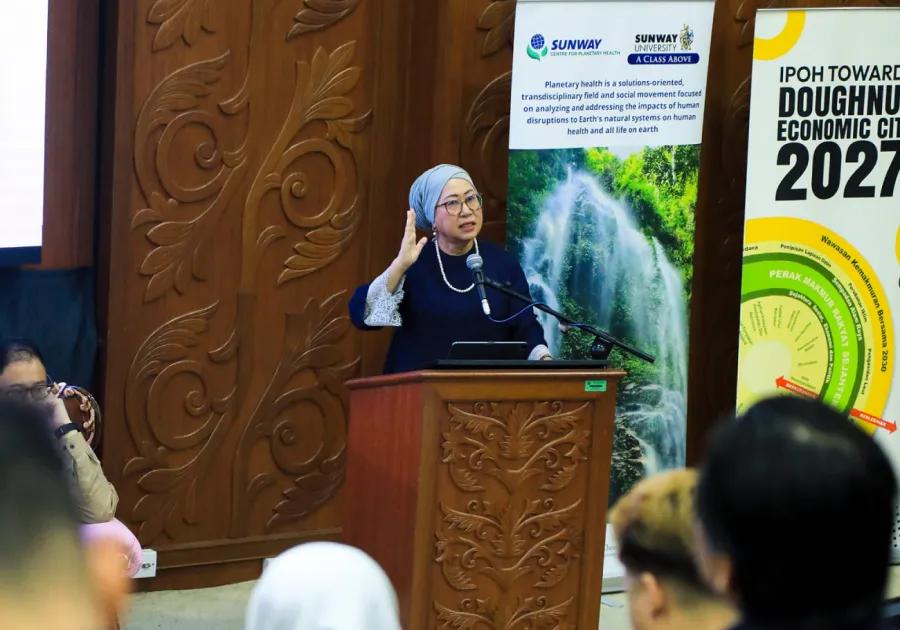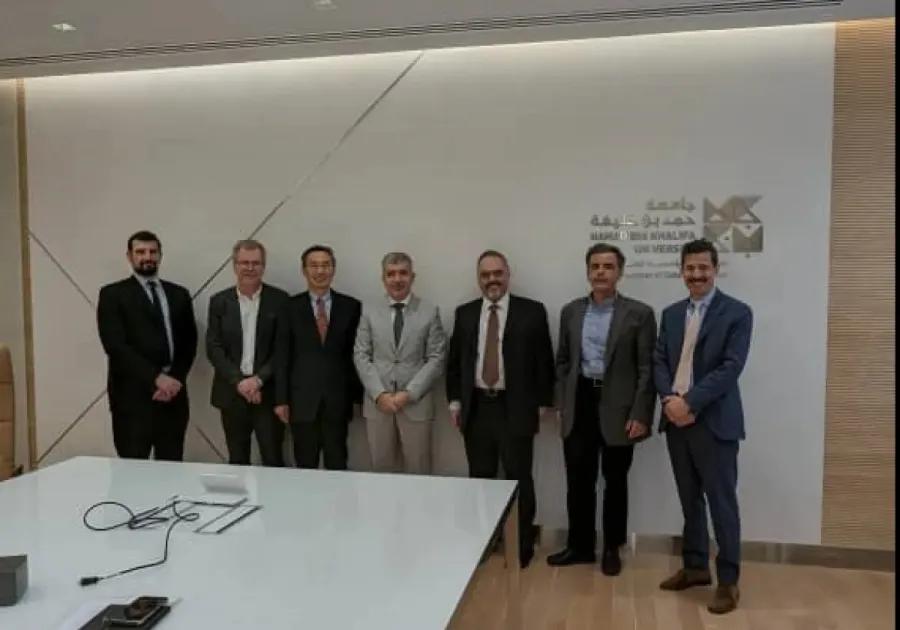Policy Development for Clean Energy Technology
SDG 7.4.4
Local
In recent years, economist Kate Raworth’s concept of the Doughnut Economy has gained recognition as a model for sustainable development, offering a framework that seeks to balance human needs with the planet's ecological limits. This model envisions a world where societal well-being is aligned with environmental sustainability.
The Doughnut Economy is visually represented by a doughnut shape: the inner ring signifies the social foundations necessary for human well-being—such as health, education, and equity—while the outer ring represents the ecological ceiling, beyond which environmental harm occurs, including climate change, biodiversity loss, and pollution. The area between these two rings is where a fair and sustainable society can flourish.

Launched in March 2023 with funding from Yayasan Hasanah, the Ipoh Doughnut Economics Programme is a collaborative initiative involving Sunway University’s Sunway Centre for Planetary Health (SCPH), Institut Darul Ridzuan (IDR), People of Remarkable Talent (PORT), and Ipoh City Council (MBI). The program seeks to transform Ipoh into a "Doughnut City" focused on sustainable development, an approach endorsed by Sultan Nazrin Muizzuddin Shah of Perak and other senior state leaders who see the framework’s principles as aligning with Perak’s broader vision. The initiative also includes clean energy and energy-efficient technology policy development as part of its commitment to environmental sustainability, as in the doughnut’s outer ring.
SCPH Executive Director Tan Sri Dr. Jemilah Mahmood noted that this achievement reflects Sunway University's commitment to planetary health and the UN Sustainable Development Goals (SDGs), underscoring the university's role as a “Campus with a Conscience” that actively promotes sustainable solutions and cultivates responsible global citizens.
Regional
National
Global





